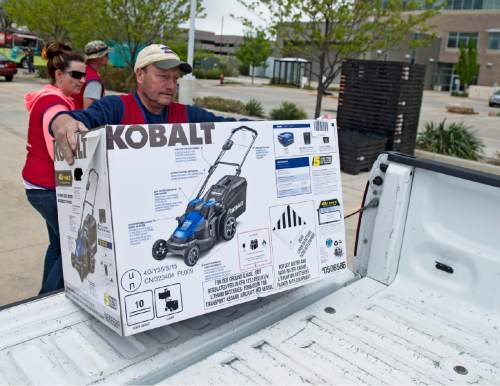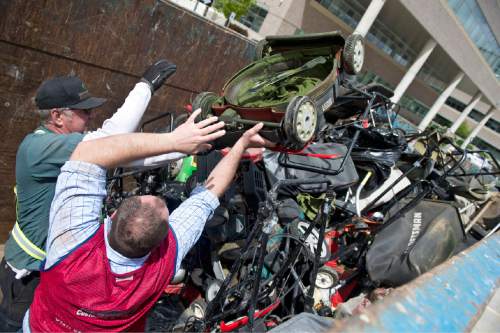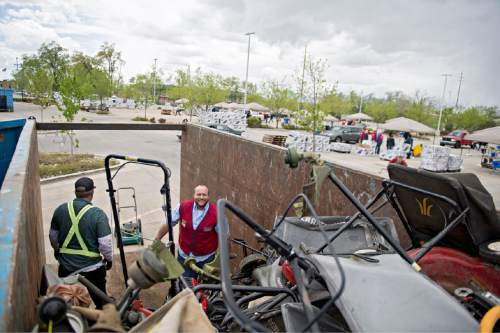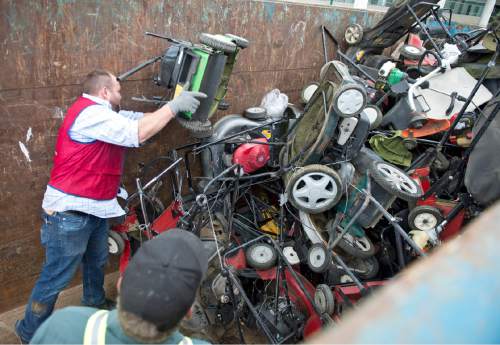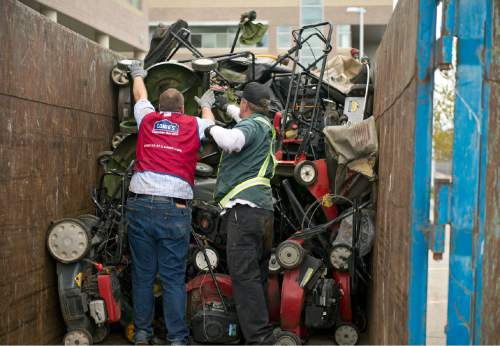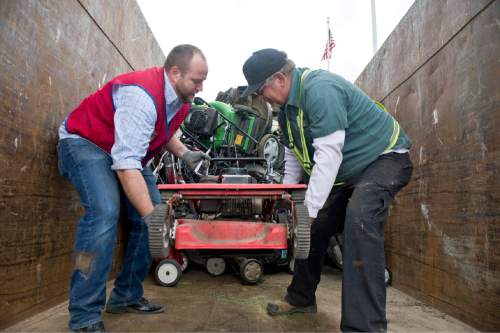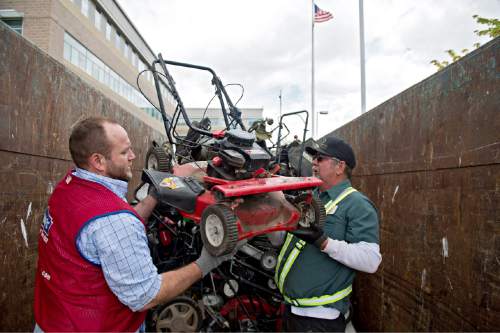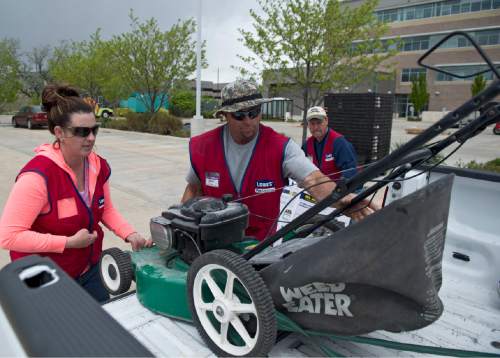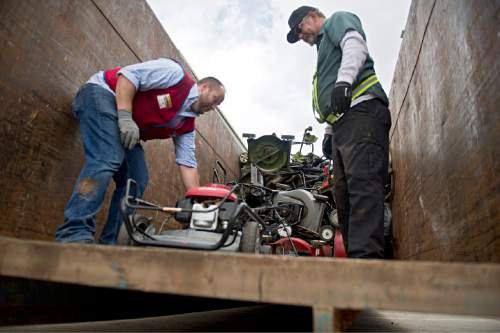This is an archived article that was published on sltrib.com in 2016, and information in the article may be outdated. It is provided only for personal research purposes and may not be reprinted.
With high winds and threatening clouds, Saturday's weather wasn't the sort that typically inspires spring yard work fever. Regardless, more than 1,100 Utahns made it out to pick up new, more energy efficient lawn equipment from the state Department of Environmental Quality (DEQ).
The DEQ distributed 944 electric lawn mowers and 732 electric lawn trimmers Saturday, most in exchange for residents' older gas-powered mowers and trimmers.
"Every few minutes someone comes and gets me to say there's a backup on the road," said Lisa Burr, a senior research analyst for the DEQ who coordinated the event.
In 2015, the program's first year, the DEQ distributed just under 400 electric lawn mowers. This year, Burr said, the department was swamped with interest from the moment it announced online registration for the event, where Utahns could buy a new electric mower at a reduced cost and turn in old mowers and equipment for a deeper discount.
The website crashed the first day when 900 individuals attempted to access the site simultaneously. Since then, with high traffic bogging down the website, Burr's phone has been ringing off the hook.
"It's just nonstop interest," she said.
The DEQ sent seven dumpsters' worth of surrendered lawn mowers and trimmers to be scrapped and recycled for metals.
The lawn mower exchange program is perhaps the most popular element of the DEQ's CARROT initiative, a collection of incentives intended to reduce pollution released from engines.
Those who flocked to the event — some lining up at 8 a.m., an hour before the first exchange was scheduled — were surprised to learn that it might be the last. CARROT, enacted by the Utah Legislature in 2014, did not receive funding from lawmakers this year.
"That's crazy," said Jerry Juneau, a South Jordan resident. "When I heard about this, I thought it was a brilliant idea."
The bulk of CARROT targets larger vehicles, such as school buses, but lawn care equipment made the list because it, too, releases emissions. One hour of operating a four-stroke lawn mower is equivalent to driving 500 miles in a car, Burr said.
There were many proposals jockeying for funding this year — the DEQ itself received $6.2 million to construct a new laboratory. Still, Burr said, she thought the choice to deny funding to CARROT was a mistake.
"Based on the response we got over the last couple of years," she said, "I think it would be just as successful for the next couple of years."
Others' discontent with the lack of funding went deeper.
Tom Tomisin, an Ogden resident, said he'd already switched to natural gas vehicles and wanted to find alternative fuels for his lawn equipment as well. He "just doesn't like gasoline," he said, or the harmful effects it has on the environment. This year, he said, the Legislature discontinued both the incentives that enabled him to get his natural gas car and his electric lawn mower.
"It seems two-faced," he said. "People say they want to clean up the environment, but then they don't."
If Utah's leaders continue to cancel incentive programs before they have a chance to make a difference, Tomisin said, it could become increasingly difficult to build support for future environmental initiatives.
While bigger projects may be flashier and have more political clout, Marci Hall, a Salt Lake City resident, said she felt smaller initiatives like CARROT still warranted funding.
"It's a way for the individual to help and participate," she said. "Even though we have a smaller footprint, we still matter."
Twitter: @EmaPen


